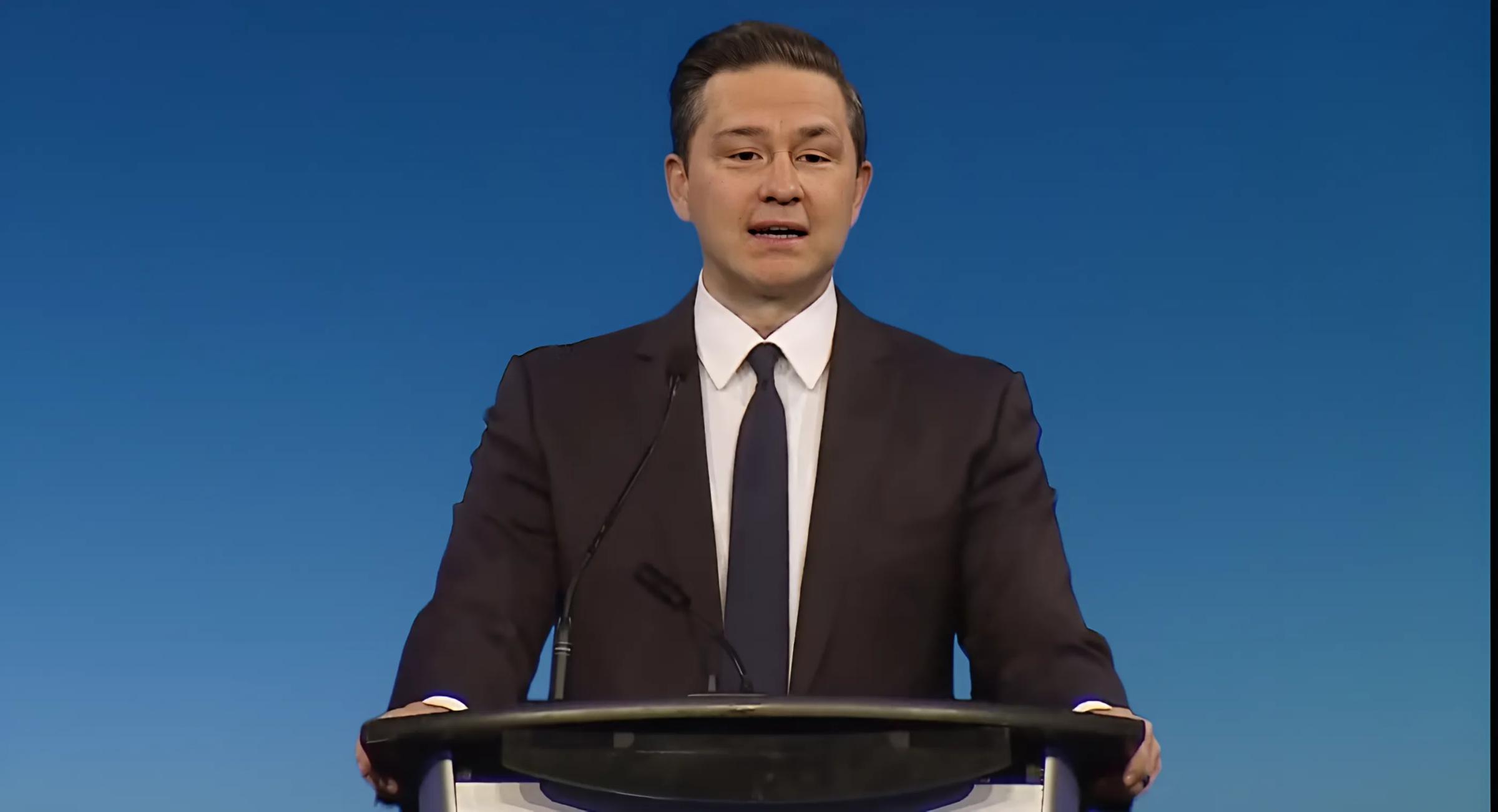Conservative Leader Pierre Poilievre unveiled a proposed legislation, the Safe Hospitals Act, aimed at prohibiting the use of hard drugs within hospital premises. Speaking to reporters in Vancouver, Poilievre painted a vivid and alarming picture of the current situation in some Canadian hospitals.
Poilievre asked the audience to imagine traumatic scenarios where patients and new mothers are exposed to drug use and potential violence within hospital settings. He described situations where patients recovering from serious incidents might find themselves next to individuals smoking crack or meth, who might also be in possession of dangerous weapons. Poilievre emphasized that such occurrences, although seemingly out of a horror film, are part of the reality faced by healthcare workers and patients due to the current liberal policies.
The BC Nurses Union, according to Poilievre, has raised alarms about healthcare workers being exposed to second-hand smoke from hard drugs like crack and meth, which can potentially contaminate breast milk and pose health risks to both the workers and their children. These conditions, Poilievre argued, are a direct consequence of the decriminalization policies implemented by the Trudeau administration and the BC NDP government.
“After nine years of Trudeau and the NDP, everything costs more, work doesn’t pay, and crime has surged,” Poilievre stated. He linked the financial strain experienced by Canadians to the exacerbation of the drug crisis, criticizing the federal government’s approach to decriminalization of hard drugs. He noted that the increase in drug overdose deaths by 38% under these policies is a clear indicator of their failure.
Poilievre’s proposed Safe Hospitals Act includes several key provisions aimed at restoring safety in healthcare facilities. First, it introduces an aggravating factor for sentencing anyone found bringing unauthorized weapons into hospitals. Second, it removes the federal health minister’s discretion under the Controlled Drugs and Substances Act to decriminalize illicit drugs such as fentanyl, methamphetamine, crack, and heroin within hospital settings. This measure is designed to ensure that even if decriminalization policies are expanded to other provinces, hospitals will remain drug-free zones.
The Conservative leader also called for the immediate passage of Bill C-321, introduced by Conservative MP Todd Doherty, which seeks to establish harsher penalties for assaults on healthcare workers and first responders. “If you attack a nurse, a paramedic, or a doctor, you will go to jail for longer,” Poilievre asserted, underscoring his commitment to protecting those on the front lines of the healthcare system.
Addressing potential pushback from provincial governments, Poilievre dismissed the possibility, emphasizing that British Columbians and Canadians, in general, would support his common-sense approach over what he described as the “radical” policies of the current administration. He positioned his plan as a necessary step to curb the “chaos, drugs, and disorder” that he believes have been unleashed in Canadian communities.
In response to questions from reporters, Poilievre reiterated his stance that the current government’s policies have led to significant economic and social challenges, including the housing crisis in cities like Vancouver and Toronto, which he described as among the most overpriced markets in the world. He linked these issues back to the broader impacts of the Trudeau administration’s economic management.
Poilievre promised that a Conservative government would not only ban hard drugs from hospitals but also focus on treatment and recovery to help individuals struggling with addiction return to a drug-free life.
As the political debate intensifies, it remains to be seen how the federal government will react to this proposal and what impacts it may have on both provincial jurisdictions and the broader national discourse on drug policy and healthcare safety. The coming months will be critical in determining the future of this legislation and its potential to shape Canada’s approach to managing hard drug use in public and healthcare settings.

